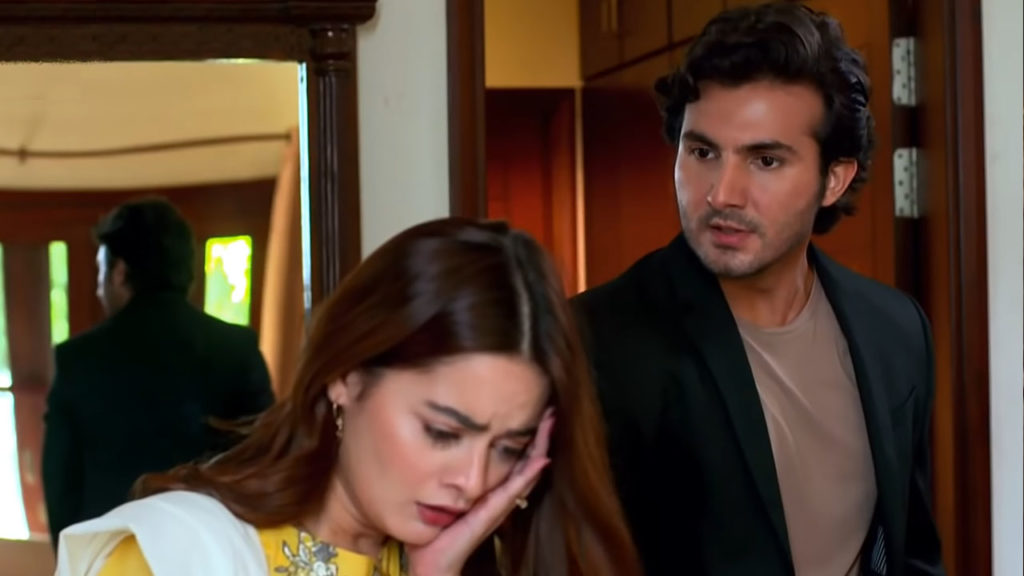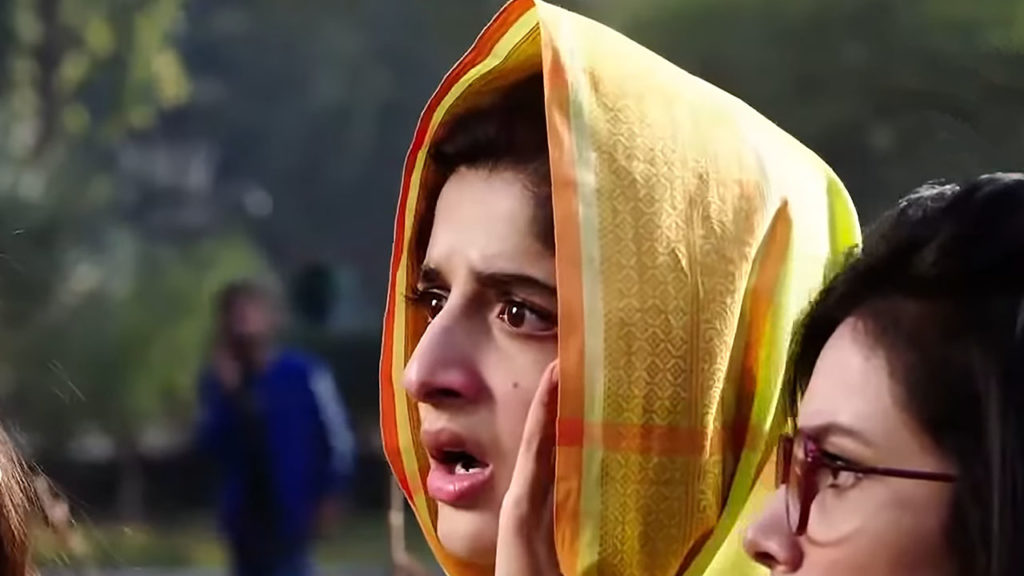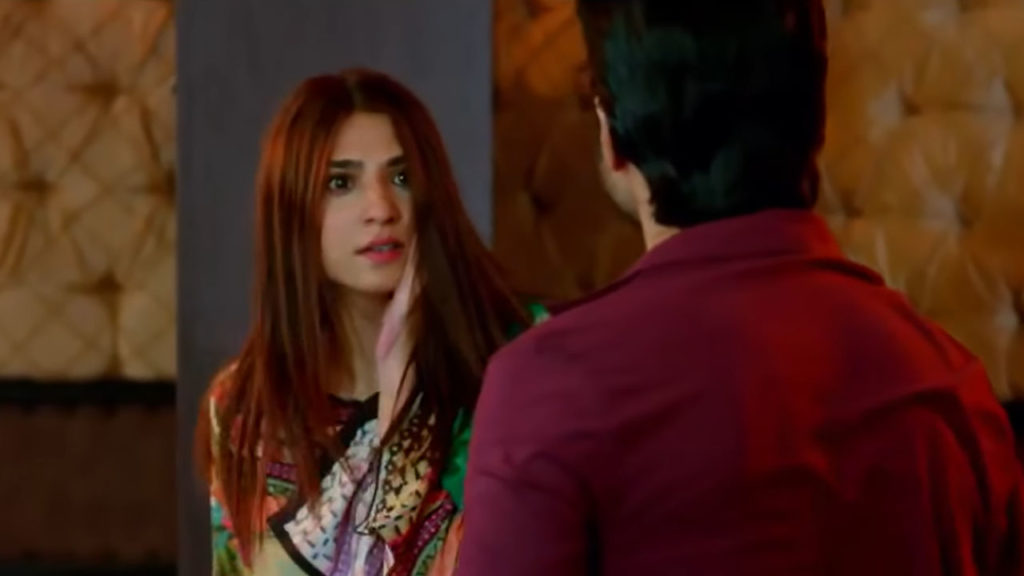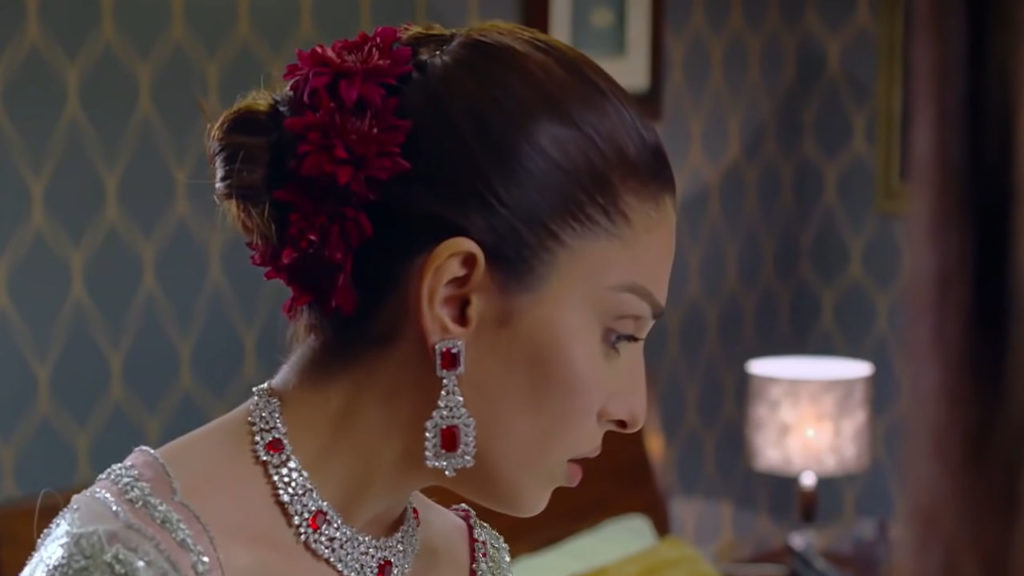If you’re a TV drama enthusiast like I am, it is almost guaranteed you will watch the exchange of a thapad (slap) every now and then. To me, it is an overwhelmingly chilling thought that this concept of slapping someone in an argument is often celebrated (like in ‘Meray Pass Tum Ho‘). Well, should it even be thought of as a means of retaliation? Whenever I watch an on-screen thapad, I question the need for it. The build-up, most of the time, involves grief, trauma, patience, and revenge. Can the conflict be resolved otherwise? Most times the answer is yes but of course, less sensational. Here’s my attempt to debunk the myth that a thapad is a script demand to conclude a story – and why I feel a thapad (or outrage and violence in general) is never a solution.
Thapad as spiteful revenge

I fail to understand how these acts of violence, these thapads are not a call-for-a-fight, rather they just come out of the blue for no apparent reason. Why does the thapad come at the beginning of a monologue? Who in this world will get a thapad and then stand there to listen to some “logical” reasoning to justify it, “yeh thapad tumhe is liye mara hai…” It’s bizarre to see how the self-righteous and always goody-good lead lessens responsibility through blame, only to give viewers a fallacy of moral righteousness. And then in the most important plot points, the characters do not communicate; they either fail to say what was needed or fail to listen to what the other person had to say. Zero f***s given to reading body language. As a result, the miscommunication snowball rolls and bursts into a thapad which is just wrong on so many levels.
Where the protagonist is given the responsibility for all the success and happiness of everyone around, why isn’t the blame of failing to win over the so-called enemy also shared? No matter how we try to justify outrage, no matter how good it feels to physically assault people, it will always crush us from the inside over time. Physical violence is never a win or a loss, it is always a lose-lose situation. And since we never consciously acknowledge the pleasure associated with outrage, it is even more insidious. It seems with more and more thapads on screens, we are forgetting that wrath is vice even in a form of revenge.
Thapad as a wake-up call

If you, like many of our drama writers, think that a thapad will serve as a wake-up call, I have some bad news for you – you will most likely never hear “tum ne tou meri aankhaien khol dien” in response to such an act of violence and would probably put you in a vicious cycle. And if you have started to believe that your thapads can solve your issues with people, you are learning to become abusive in relationships. As a covert abuser, you may justify your actions by believing yourself to be the victim in the situation, but that still makes you an abuser.
Where the rest of the world is advancing towards restorative justice at the national level, we must start to demonstrate some degree of empathy at least on-screen if not in our justice system. We need to believe that the presence of empathy heals conflicts. And TV-dramas can be the vessel we need as they reach the masses. Why have our writers failed to establish that communication can resolve relationship problems? Shouldn’t we try to put an end to so much hatred in our society? Shouldn’t we start believing that empathy is not a weakness but a strength? If I am wrong and hateful to any person around me, getting a thapad from the person will only make me even more spiteful and I don’t see that ever changing. Like I said earlier, it’s then a vicious cycle that we’re stuck in.
We all have mirror-receptors

Since I had grown up watching the thapad-frenzy on TV, I am guilty of physically attacking my siblings in my formative years and I regret it the most. I can take responsibility for my actions now after years of realisation and awareness, but back then I was naïve and easily influenced by my surroundings – just basics of primary socialisation. When we know our protagonist resorts to outrage, somewhere I had this as an option in my subconscious. Well, I didn’t know any better. That’s where the content we consume can help, isn’t it? To show me how to handle the worst of myself in the craziest of situations. You know how certain advertisement jingles get stuck in our heads and sometimes we unconsciously repeat dialogues? Similarly, we pick up the tone of voice, certain words, and reactions by our favorite characters. If physical assault is being portrayed as a justified behaviour, it’s not unlikely that we start modeling it.
#NoMoreThapad

To all the ustaads hitting their chotus at work, teachers striking students in school, Qari Sahabs hitting their students, random violence towards house-helpers, husbands striking wives, wives returning thapads, siblings exchanging thapads and all the other thapad-o-thapad-ee crazy characters on TV, ENOUGH! This madness needs to stop. Let’s acknowledge that outrage only causes more harm and scars in our lives and it needs to come to an end. It’s time we start normalising sanity and resolving issues with respect and dialogue rather than physical abuse. Maybe that will bring change in our society, maybe that can help reduce the rising trend of rape, abuse, domestic violence, and other societal issues. These dramas are watched by people from all walks of life and every socioeconomic status. Watching how issues can possibly be resolved with love and respect might just influence them to do the same.




